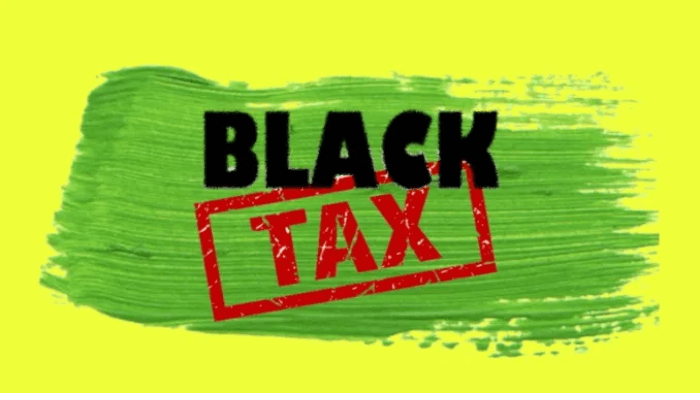Is Black Tax Even Real?
Blax Tax. Put simply: The unspoken debit order from your family that activates the moment you get a pay slip.

Blax Tax. Put simply: The unspoken debit order from your family that activates the moment you get a pay slip.

The Professor’s Graph and the GDP Gap
I once had an Economics Professor, let’s call him Mr. Barthalameou, who believed that if something couldn’t be measured, it didn’t exist. His favourite graph compared South Korea’s and South Africa’s GDP between 1980 and 1985, when both countries were neck and neck. Then, with dramatic pauses and piercing eye contact, he’d show how South Korea’s line shot up while ours flatlined. To him, the numbers told the whole story: South Africans were lazy, and only hard work would save us.
The Debit Order That Nobody Signed For
Can we have some truths that are cultural, with no data? Take Blax Tax. Put simply: The unspoken debit order from your family that activates the moment you get a pay slip. There are countless articles on the subject and they’re all rooted in the social context.
There is a way to go about proving this, like assessing the income and expenditure of South Africans to ascertain how Black Tax affects our economy, if at all.
The Income and Expenditure Survey (The IES) was the primary source of this investigation and what follows is what was found on spending patterns in South Africa.
The total annual household consumption spend in a year is estimated at R3,0 trillion in South Africa, with South Korea achieving that figure in one quarter of the year alone in 2023.
African-headed households spend 62% of the share of spend in this country, despite being 82% of the country and White-headed households had the second largest share at 25%. When looking at the differences of household spending across racial groups, most groups showed similar figures. However, among black African-headed households, the gap between the average and middle was larger, meaning there’s more inequality in how much households spend compared to others.
A Matter of Kinship
Before we explore this cliffhanger, the National Library of Medicine conducted a research study where they assessed the “Willingness to Invest in Children.” Jan Antfolk discovered, unsurprisingly, that adults invest more in biologically related children. Respondents were presented with children belonging to different categories (direct offspring, nieces, nephews, stepchildren and friends’ children) and responses were measured.
Kinship was found as the key factor that determined whether an adult would invest, meaning emotional closeness is the driver of investment and not only relation. Investment in stepchildren turned out to be much higher than expected indicating that even if there isn’t a biological connection the kinship experienced surpassed that of nieces and nephews. In South Africa there is an intimacy premium on larger families. This is the cornerstone of Ubuntu. It takes a village to raise a child.
Numbers Don’t Lie
The IES claims that White-headed households experienced the farthest drop in household spend. In contrast Black African-headed households experienced growth in their spending, despite the economic effects of the pandemic and 2008 recession.
If Black Tax isn’t real then how did African headed households on average receive a larger share of household spending (Not the highest amount of spend but more growth in spending)?
There is clearly a distribution of existing income to those in need, despite African headed breadwinners earning less per capita than other groups. How else did Black African-headed households all collectively grow even through the pandemic when all other groups dropped?
Considering rampant unemployment and slow economic growth, how have they consistently reported higher total growth rates in household spend when in the same period Indian/Asian (-18,3%) and White-headed households (-8,7%) experienced the largest decline?
“If you want to move quickly, go alone. If you want to go far then go together” – African Proverb.
Despite the claim of under-reporting from White-headed households the IES does acknowledge that the cost of living has affected household spend of different racial groups differently. In this case, Black African-headed households are less impacted during recessions despite not being the most affluent of the four existing groups. If Black Tax exists, it is working as an economic lubricant.
The Real Cost
The unemployment rates are highest in provinces such as Limpopo and North West, yet they experience higher rates of household spending over the same period while economic hubs like CPT and JHB see declines. Households headed by those with no schooling and primary education experienced positive growth above 20% in household expenditure.
Once again, how is this possible given the economic state?
The reality is that Black African-households headed by those with tertiary and secondary education have experienced declines. There is clearly an incongruous nature to household spending during trying times for those that are economically active versus for those that aren’t. The IES once again attributes this phenomenon to under-reporting, but it looks to me as though the economic burden is being spread.
A total of 5.8% of the average annual household income of all South Africans comes from either “Other Income” and “Income from Individuals” which I think is safe to file under Black Tax for African headed households in some way or form.
Digging a bit deeper into race leads to more telling results. Black/African households attribute 6.7% of their income to “Other Income” and “Income from Individuals,”
South Korea reports a staggeringly low unemployment rate of 2.8%. There is less money moving to people outside of the family, but all their success is attributed to their traditional value of hard work.
In South Africa money is moving within families rather than upward into wealth creation. Yet that same money keeps many South Africans afloat when times are hard. In a country where one person’s success often feeds ten mouths, Black Tax isn’t just an economic burden, it’s a social safety net built on Ubuntu. Capitalism might not favour it, but without it, many South Africans wouldn’t survive.
Sources:


